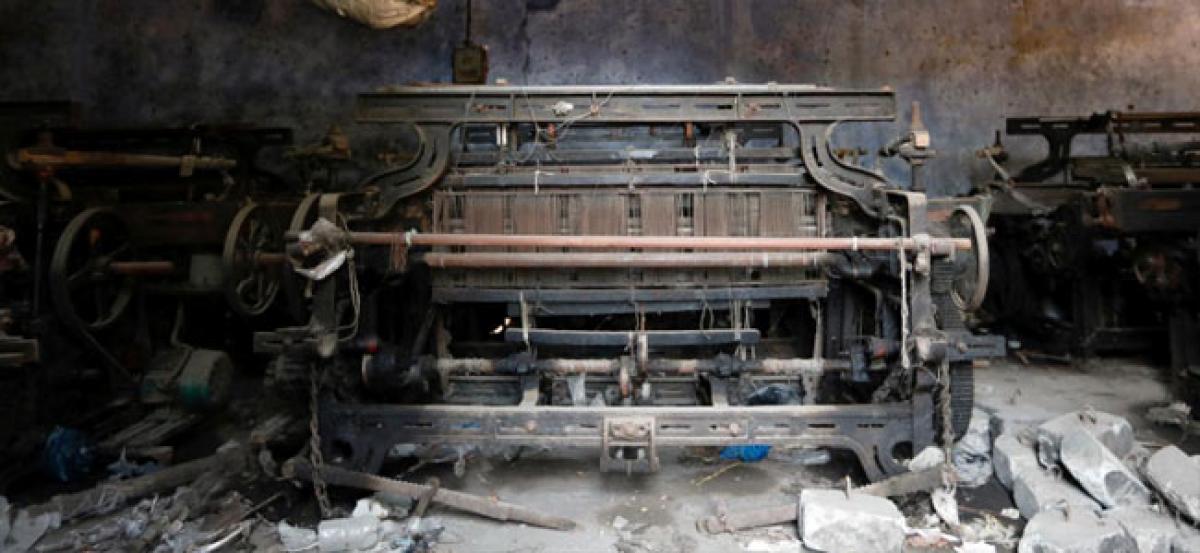Live
- Guests from abroad lap up traditional Odia dishes
- Gurukul teacher appointments: SFI, Girijana Sangham demand inquiry
- Loyola PG students explore PJTAU
- JSW lays stone for Kalyan Mandap
- Rope in SHGs to establish solar power plants: RR DC
- Naidu visits tragedy site
- Big rush for Pariksha Pe Charcha
- LA firefighters battle wildfires
- Satiating hunger is greater than almsgiving for this baker!
- DTC warns against overcharging passengers
Just In

Indian factory activity barely expanded in October as new orders fell, a survey showed on Wednesday, as price rises following the introduction of a goods and services tax dragged on the economy and underscored dim growth prospects over coming months.
BENGALURU: Indian factory activity barely expanded in October as new orders fell, a survey showed on Wednesday, as price rises following the introduction of a goods and services tax dragged on the economy and underscored dim growth prospects over coming months.
The Nikkei Manufacturing Purchasing Managers’ Index, compiled by IHS Markit, fell to 50.3 last month from September’s 51.2, marking its third month above the 50-point threshold that separates growth from contraction.
That was below all projections in a Reuters poll which had predicted a modest uptick to 51.5 and comes after another recent Reuters survey forecast India’s economy will grow at its slowest pace in four years this fiscal year.
“India’s manufacturing companies struggled somewhat as the recent recovery enjoyed by the sector lost impetus in October. Disappointingly, manufacturing production rose at the weakest pace in the current sequence of growth,” said Aashna Dodhia, an economist at IHS Markit.
“Inflows of new orders stagnated as the negative effects arising from the implementation of GST continued to dampen demand levels.”
The government’s decision to ban high value-currency notes last November, combined with the introduction of a new unified tax system, dampened consumer spending and industrial activity.
“Business confidence eased to the weakest since February as some firms expressed concerns over negative GST effects,” Dodhia said.
The new orders sub-index, a proxy for domestic demand, fell to a three-month low of 49.9 from September’s 51.0, discouraging firms from increasing output faster. Foreign demand contracted at the fastest pace since September 2013.
Firms passed on greater cost burdens and raised prices more sharply, suggesting retail inflation could extend its uptrend over the coming months.
Indian consumer inflation held steady at 3.28 percent in September, but is expected to accelerate over coming months led by higher petrol and diesel prices, complicating the task of the Reserve Bank of India as it seeks to stimulate the economy with more rate cuts.
According to minutes from the central bank’s October 4 meeting a majority of board members voted to keep the repo rate unchanged as they were worried about rising consumer prices in the near-term.

© 2025 Hyderabad Media House Limited/The Hans India. All rights reserved. Powered by hocalwire.com







